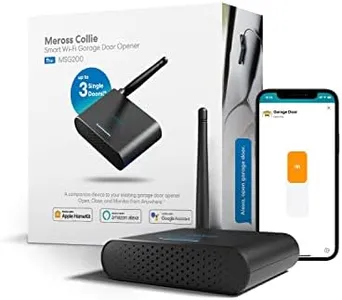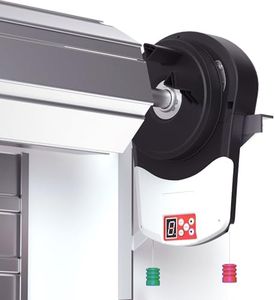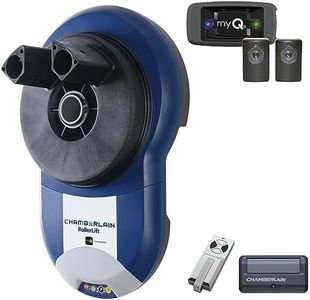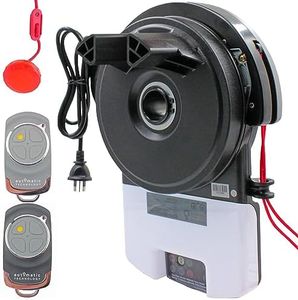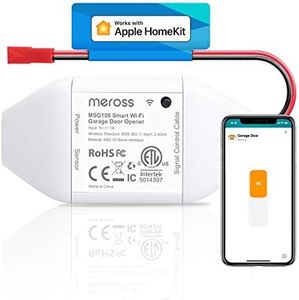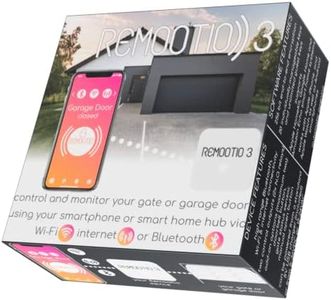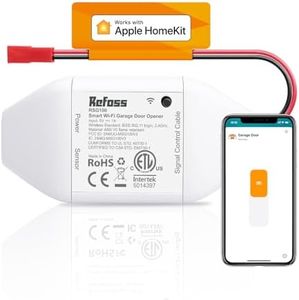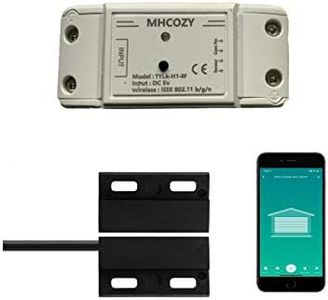We Use CookiesWe use cookies to enhance the security, performance,
functionality and for analytical and promotional activities. By continuing to browse this site you
are agreeing to our privacy policy
10 Best Garage Door Opener
From leading brands and best sellers available on the web.By clicking on a link to a third party's website, log data is shared with that third party.
Buying Guide for the Best Garage Door Opener
Choosing the right garage door opener can make your daily routine smoother, safer, and more convenient. The best fit for you depends on your specific garage type, how much noise you can tolerate, and whether you want extra features like smart connectivity. Before you dive into the options, think about your garage size, the weight of your garage door, and how you’ll use it. Understanding the main features will help narrow down your choices and ensure you get a model that meets both your immediate and future needs.Drive TypeThe drive type refers to how the opener moves the garage door. The three main types are chain, belt, and screw drive. Chain drives are sturdy and affordable, but they’re noisy and may not be ideal if your garage is under a living space. Belt drives are quieter and smoother, making them a better choice in attached garages, though they tend to cost more. Screw drives are faster and require less maintenance, though they can be a bit noisier than belt drives. Pick a drive type based largely on your tolerance for noise and the location of your garage relative to your living spaces.
Horsepower (or Motor Strength)This spec tells you how powerful the opener’s motor is. Standard values generally range from 1/2 to 1 1/4 horsepower. For most single or standard double garage doors, 1/2 HP is sufficient. Heavy or insulated doors require more power, typically 3/4 HP or above. If you have an extra-large or particularly heavy door, go for higher horsepower to extend the opener’s life and ensure smooth operation. Always consider your door’s weight and size when choosing motor strength.
Noise LevelNoise level is mainly determined by the drive type and build quality. If your garage is attached to the house or you have bedrooms close by, quiet operation can be very important. Belt drives and some direct drive models operate almost silently, while chain and screw drives tend to be louder. Consider your household’s sensitivity to noise and the garage’s placement to find the best fit.
Safety and Security FeaturesModern garage door openers come with a variety of safety features, including auto-reverse (which stops and reverses the door if something is in the way) and rolling code technology (which changes the access code each time you use the remote). These prevent accidents and add security against break-ins. Look for openers that meet safety standards and offer convenient security upgrades, especially if you store valuables or have children and pets at home.
Smart ConnectivitySome openers have built-in WiFi or can be upgraded to connect with smart home platforms. This allows you to control and monitor your door’s status from your phone, set schedules, or receive alerts if the door is left open. If you want convenience and the peace of mind of remote control, focus on models with these features. If you just need a basic opener and aren’t interested in smart features, a conventional model will suffice.
Backup PowerBackup power means the opener can still work during a power outage, usually via a built-in or optional rechargeable battery. This is important if you live in an area with frequent outages or want to ensure you never get stuck outside. Decide based on how critical uninterrupted access is for you.
